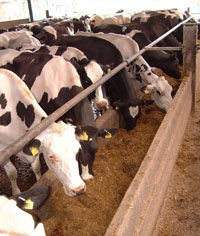NFU to launch dairy survival plan

Next week the NFU will launch its Survival Plan for British Dairying, plotting a route forward for the whole sector to try and stem the flow of farmers quitting milk production.
| Areas to be covered by the Survival Plan
|
|---|
The move comes as milk buyers have completed another round of price cuts and deliveries from British dairy farms stumble along at well below national quota. Last week a report from DairyCo also predicted a continued exodus unless action was taken to bolster dairy farmer confidence, (Business, 6 February).
“While the long-term prospects for dairying look good, in the short-term we need urgent changes – both in the supply chain and the regulatory framework – to prevent an erosion of critical mass,” said NFU chief dairy advisor Hayley Campbell-Gibbons.
To encourage such change, the NFU will launch its Survival Plan at its annual conference in Birmingham on Monday (16 February).
The report will identify areas of particular difficulty that are holding the sector back, for example lack of market development, over-regulation and unfair supply chain relationships.
It will also highlight examples of good practice where the sector is functioning well, for example dedicated supply chains with the retailers and the promotion of British dairy products.
The NFU will then challenge all players in industry – farmers, milk buyers, retailers, government and industry bodies – to take specific actions designed to secure the future supply of milk from British farms.
“We will be setting out a comprehensive action plan,” said Ms Campbell-Gibbons. “Success will be measured by a slowdown in the number of farmers exiting the dairy industry, increased levels of investment on farms and an increase in British milk production next year.”
- Back to NFU conference 2009 front page
| For a Farmers Weekly view on the NFU’s dairy survival plan, visit Phil Clarke’s Business Blog. And why not add it to your list of favourites? |
|---|

